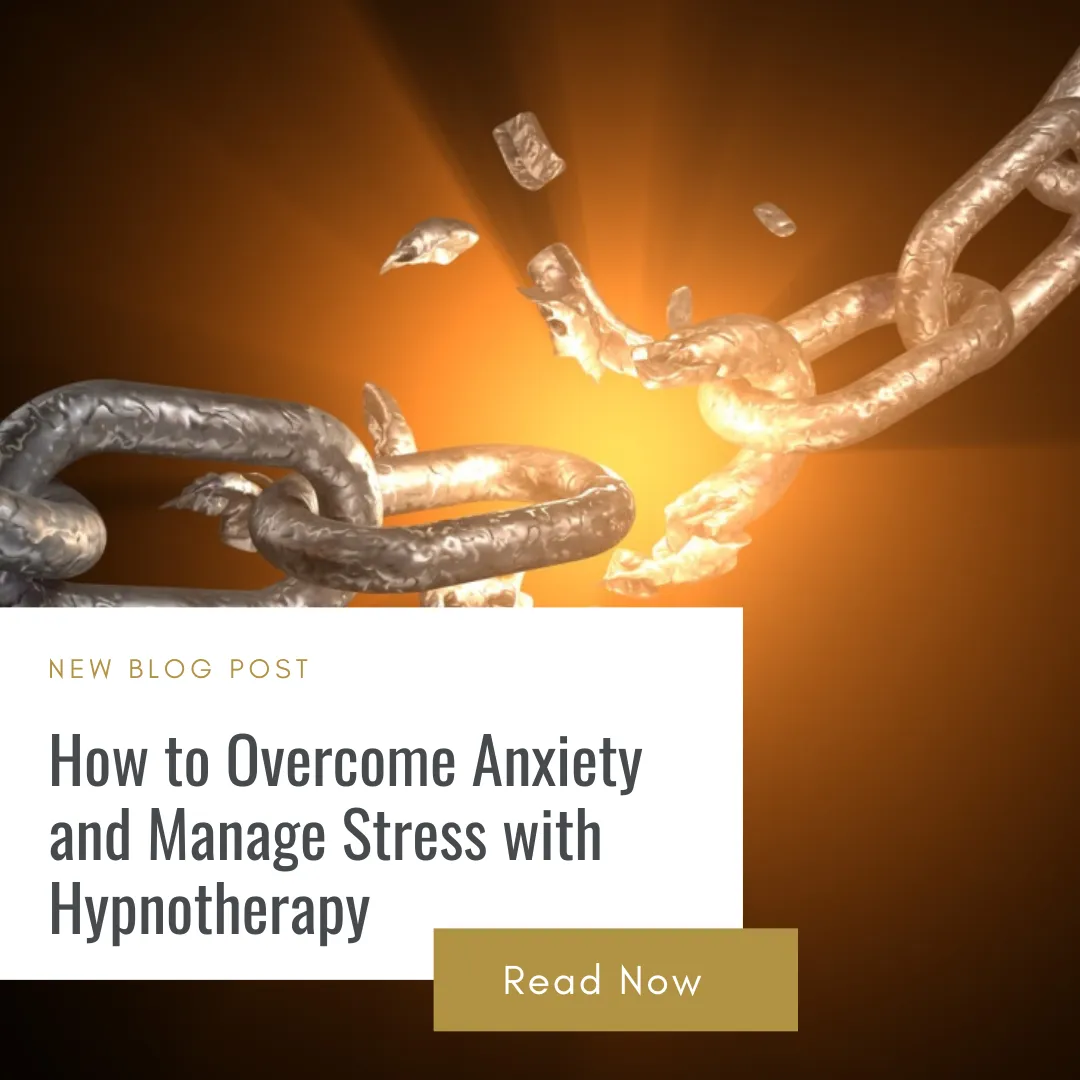403-498-8884

Unlock the Secrets to a Happier, Healthier You
Discover Our Latest Blog Posts!

Combat Stress and Anxiety with Hypnosis: What You Need to Know
“The unconscious mind records all 1001 little details the conscious mind neglects” - John Grinder
Introduction:
Stress and anxiety have become increasingly common in modern life, and it's no wonder why. With busy schedules, the pressures of work and family life, and the constant flow of information and media, it's easy to feel overwhelmed and stressed out. Fortunately, there are many ways to manage stress and anxiety, and one of the most effective is through hypnosis.
Hypnosis can be an incredibly powerful tool in combating stress and anxiety, and in this blog, we'll explore what you need to know to get started.

What is Hypnosis?
Hypnosis is a state of focused attention and relaxation where the subject is more open to suggestion by becoming focused on letting go and visualizing a successful outcome. It's a natural state that we all experience daily, like when we get engrossed in a book or lose track of time during a long drive. During a hypnosis session, the hypnotherapist will guide the client into this state to help them access their subconscious mind and make positive suggestions which result in positive changes.
How Hypnosis Can Help with Stress and Anxiety
Hypnosis can help alleviate the symptoms of stress and anxiety in several ways. Firstly, it can help the client relax deeply, which reduces feelings of tension and worry. Secondly, it can help the client access the root causes of their stress and anxiety, whether they're conscious or unconscious. Through this exploration, the client can gain a better understanding of their triggers and patterns and develop healthier coping mechanisms.
How to Find a Hypnotherapist
To get started with hypnosis, the first step is to find a qualified hypnotherapist. Do your research and look for someone who is certified and experienced in treating stress and anxiety. Always check their credentials and read reviews from previous clients to ensure that they're a good fit for your needs. It's also important to feel comfortable with your hypnotherapist as hypnosis requires a level of trust and rapport between client and therapist. Most clinics will offer a free phone consultation. This can be a very important first step - the opportunity to ask questions.
What to Expect During a Hypnosis Session
During a hypnosis session, the hypnotherapist will guide you into a state of deep relaxation and focus on your breathing or visualization techniques. They may use guided imagery or suggestions to help you reach your goals or overcome specific issues. You'll be fully aware and in control throughout the session, and it is important to note that the hypnotherapist can't make you do anything against your will. Most people like to experience their session with
How to Get the Most Out of Your Hypnosis Sessions
To get the most out of your hypnosis sessions, it's important to be open-minded and willing to participate fully. Be clear about your goals and what you hope to achieve, and give feedback to your hypnotherapist throughout the process. Remember, hypnosis isn't a one-size-fits-all solution, and you may need to try different techniques for therapists to find what works best for you.
Conclusion:
Stress and anxiety can be detrimental to your mental and physical health, but they don't have to control your life. Hypnosis is a powerful tool that can help you manage these issues and live a more balanced and fulfilling life. By finding a qualified hypnotherapist and committing to the process, you can experience the benefits of hypnosis for yourself. Are you ready to combat stress and anxiety with hypnosis?

Download Your Free Everyone's Guide to Serene Hypnosis
Your Free Download Is Ready To Be Sent!
Please Remember:
As with any Therapy, actual results may vary based on individual results. This is not a substitute for medical advice or treatment. Please do not stop, alter or modify any medications without consulting your prescribing doctor or medical professional first.
CONTACT US
Serene Hypnotherapy Health & Wellness
Paramount Learning Systems Inc.
Varsity Medical Professional Building
8 Varsity Estates Circle NW
3rd Floor Calgary, Alberta
Canada. T3A 2Z3
403-498-8884


All Rights Reserved 2016 - 2025 Powered by Paramount Learning
All Rights Reserved 2016 - 2025
Powered by Paramount Learning
Privacy Policy | Terms and Conditions
